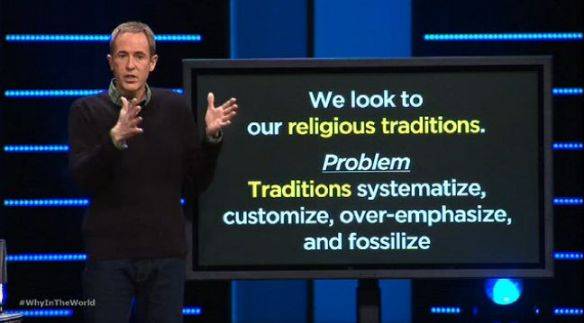Confusing the various subcultures of Christianity, with the Gospel itself is fleeting. Each Christian tradition has its own idiosyncratic ways of liturgizing, and various parochialisms, and its just straight up weird stuff that they do. For my respective “tribe,” broadly speaking, as an American evangelical, what has become weird is driven by its slavish commitment to consumerism at all costs. Whether it be professional worship bands leading worship (like the folks who didn’t quite make the American Idol cut), the pastor wearing skinny jeans, sporting a mustache, with a man bun, or just the self-help sermons and programs that run amok in such environs, there is a cultural Pelagianism present behind such productions. That is to say, the belief that people, in the main, are simply neutral beings, and that given the proper external stimuli they can be persuaded, one way or the other, to affirm Christ or not; they can be “led” into a situation, through various conditionings (and programs), where, as the theory goes, they will come to feel included in the community. You know the whole “felt needs” and “real needs” combine. One big problem with this is that such seeker sensitive churches get so hyper fixated on meeting peoples’ felt needs—with the rationalization that it’s all being done in the name and claim of the Gospel—that that becomes the end. They are unable, under such inertia, to ever get to the real need; which has been the supposed justification for using the felt needs to begin with.
As an American evangelical who has grown up in this, from its more fundy iteration to where it is now, what I have come to realize, along with many, that such Pelagianistically funded churches really aren’t representative of the church writ large at all. That is not to say that there aren’t “saved” people in the pews all throughout such churches. But it is to say that these people have become used to, and thus expectant of having their ears and eyes tickled with feel good messages; for the most part. After awhile though, the discerning Christian has to start asking at what point such a group ceases to be operating as a real life, Spirit led church, and instead finds its function more in line with some sort of social club (e.g., think of Christian Smith’s adage: moralistic therapeutic deism). None of this is to suggest that the church, this side of the Eschaton, will ever be perfect. But it is to say that at a certain point the Ghost has been given up indeed, and the so-called pastors are nothing more than “hirelings” for cultural dereliction.
For those of us seeking a healthy local church to attend, in such environments, this scenario makes it exceedingly difficult. For me, the pastors involved in this type of tripe are heading for a serious and heavy judgment. In the end, the Gospel cannot be reduced to these church subcultures; and yet often, people do engage in such reductions—and so they become so-called Exvangelicals, Nones, or straight up atheists (of a certain pop type). The Gospel is Christ as attested to and encountered in Holy Scripture. The Gospel is God’s triune Life for the world, and a genuine church is to faithfully bear witness to this deep reality; through deep and stretching teachings, activities, so on and so forth. Outwith this I have a hard time seeing how the apostasies of the Western churches (and elsewhere) can be curbed.

